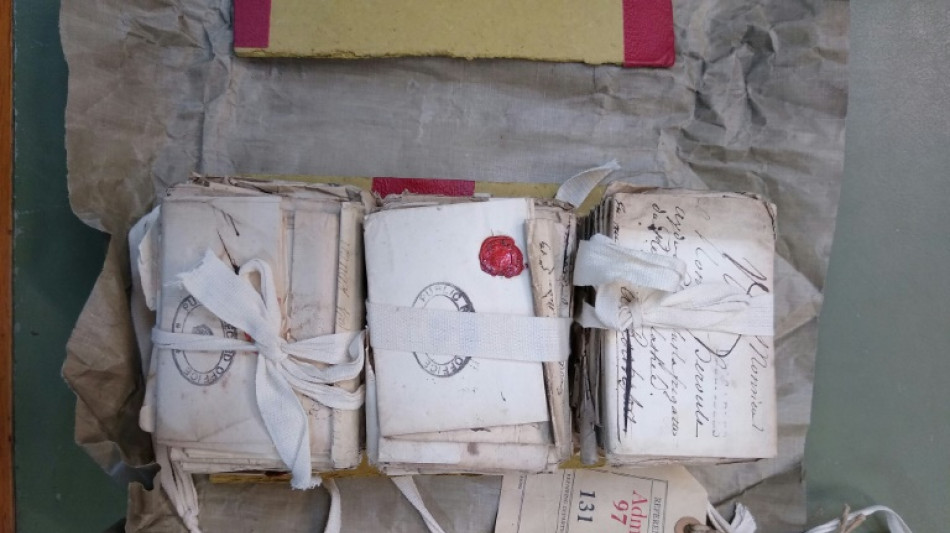
-
 US regulators tell 23andMe to protect genetic data
US regulators tell 23andMe to protect genetic data
-
Banana man Ashwani Kumar powers Mumbai to first IPL win of season

-
 World economies brace for Trump tariffs deadline
World economies brace for Trump tariffs deadline
-
Syrians rejoice during first Eid after Assad's fall
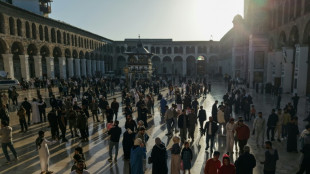
-
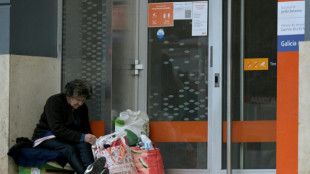 Falling inflation drives down poverty in Argentina: statistics agency
Falling inflation drives down poverty in Argentina: statistics agency
-
Iran will have 'no choice' but to acquire nukes if attacked: Khamenei adviser
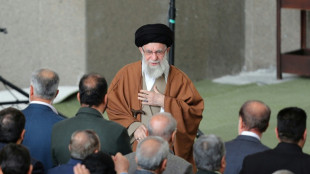
-
 France's Le Pen defiant after five year election ban
France's Le Pen defiant after five year election ban
-
Haaland sidelined by injury in major Man City blow

-
 Israel's Netanyahu slams Qatargate probe as 'political witch hunt'
Israel's Netanyahu slams Qatargate probe as 'political witch hunt'
-
No technical obstacles to new giant particle collider in Europe: CERN

-
 Swing king Ashwani Kumar powers Mumbai to first IPL win of season
Swing king Ashwani Kumar powers Mumbai to first IPL win of season
-
'Noble work' of Buddhist cremations after Myanmar quake
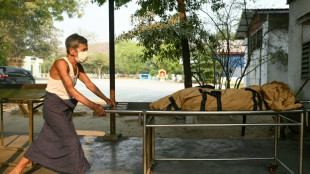
-
 Myanmar to mark minute of silence as quake toll passes 2,000
Myanmar to mark minute of silence as quake toll passes 2,000
-
Young Turkish protesters face rude awakening in police custody
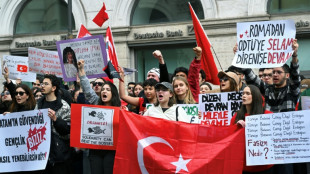
-
 Pentagon chief orders gender-neutral fitness standards for combat troops
Pentagon chief orders gender-neutral fitness standards for combat troops
-
Michelin Guide unveils new stars for 68 restaurants in France
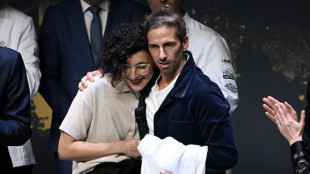
-
 Trump confident in finding TikTok buyer before deadline
Trump confident in finding TikTok buyer before deadline
-
Wrexham reap financial rewards of Hollywood tie-up

-
 Hamas issues call to arms against displacement as Israel orders new evacuations
Hamas issues call to arms against displacement as Israel orders new evacuations
-
Gazans flee southern city of Rafah after Israel military orders evacuation

-
 Canada candidates promise less reliance on US a month before vote
Canada candidates promise less reliance on US a month before vote
-
Brathwaite quits as West Indies Test skipper, Hope takes white-ball charge

-
 'No excuses' for tired Forest against Man Utd, says Nuno
'No excuses' for tired Forest against Man Utd, says Nuno
-
Spain coal mine blast kills five

-
 S&P 500 falls into correction as tariff fears rattle stock markets
S&P 500 falls into correction as tariff fears rattle stock markets
-
England Test captain Stokes to miss early county games in fitness battle

-
 Macron vows to defend science as host of UN oceans summit
Macron vows to defend science as host of UN oceans summit
-
Brain implant turns thoughts into speech in near real-time

-
 Top aide to Israel's Netanyahu arrested in 'Qatargate' probe
Top aide to Israel's Netanyahu arrested in 'Qatargate' probe
-
Slashed US funding threatens millions of children: charity chief

-
 China property giant Vanke reports annual loss of $6.8 bn
China property giant Vanke reports annual loss of $6.8 bn
-
World economies brace for Trump tariffs ahead of deadline

-
 Myanmar declares week of mourning as quake toll passes 2,000
Myanmar declares week of mourning as quake toll passes 2,000
-
Japan leads hefty global stock market losses on tariff fears

-
 Yes, oui, Cannes! Glamour name eyes place in French Cup final
Yes, oui, Cannes! Glamour name eyes place in French Cup final
-
'Different energy' at Man Utd after mini-revival, says Amorim

-
 Fear of aftershocks in Myanmar forces patients into hospital car park
Fear of aftershocks in Myanmar forces patients into hospital car park
-
Far-right leaders rally around France's Le Pen after election ban
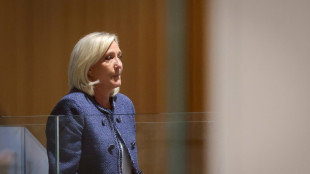
-
 Renault and Nissan shift gears on alliance
Renault and Nissan shift gears on alliance
-
Hard-hitting drama 'Adolescence' to be shown in UK schools
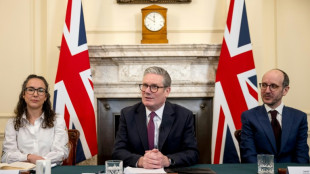
-
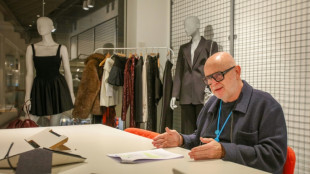 Primark boss resigns after inappropriate behaviour allegation
Primark boss resigns after inappropriate behaviour allegation
-
Myanmar declares week of mourning as quake toll passes 2,000, hopes fade for survivors

-
 Mbappe can be Real Madrid 'legend' like Ronaldo: Ancelotti
Mbappe can be Real Madrid 'legend' like Ronaldo: Ancelotti
-
Saka 'ready to go' for Arsenal after long injury lay-off: Arteta

-
 Aston Martin to sell stake in Formula One team
Aston Martin to sell stake in Formula One team
-
Three talking points ahead of clay-court season

-
 French court hands Le Pen five-year election ban
French court hands Le Pen five-year election ban
-
Probe accuses ex J-pop star Nakai of sexual assault

-
 Japan leads hefty global stock market losses on tariff woes
Japan leads hefty global stock market losses on tariff woes
-
Saka 'ready to go' after long injury lay-off: Arteta


Confiscated French love letters finally opened after 265 years
Undelivered letters written to French sailors during an 18th century war between Britain and France have finally been opened and studied -- after more than 250 years gathering dust.
The unread letters have provided a rare insight into the lives of sailors and their families in the 1700s, from the wife of a senior naval officer to an elderly mother chastising her son for not writing.
The Royal Navy seized the messages during the Seven Years' War, a global conflict that ended in 1763 that saw Britain and France lead rival alliances.
"I could spend the night writing to you... I am your forever faithful wife," wrote Marie Dubosc to her husband Louis Chamberlain, the first lieutenant of a French warship in 1758.
"Good night, my dear friend. It is midnight. I think it is time for me to rest."
Unknown to Marie, her husband's ship, the Galatee, had been captured by the British, researchers at the University of Cambridge found.
Louis never received the letter and his wife died the following year, almost certainly before he was released by the British.
In another missive dated January 27, 1758, the mother of young sailor Nicolas Quesnel from Normandy takes him to task about his lack of communication.
"I think more about you than you about me... In any case I wish you a happy new year filled with blessings of the Lord," 61-year-old Marguerite wrote in a letter probably dictated to someone else.
"I think I am for the tomb, I have been ill for three weeks. Give my compliments to Varin (a shipmate), it is only his wife who gives me your news," she added.
The Galatee was captured by the British en route from Bordeaux to Quebec in 1758.
- 'Universal human experiences' -
British Admiralty officials at the time deemed the letters of no military significance and the vast majority languished in the archives, unopened, until they attracted the attention of Cambridge history professor Renaud Morieux.
"I only ordered the box out of curiosity," said Morieux, whose findings were published on Tuesday in the journal "Annales. Histoire, Sciences Sociales".
Presented with three piles of very small letters held together by ribbon, Morieux said he "realised I was the first person to read these very personal messages since they were written".
"Their intended recipients didn't get that chance. It was very emotional," he said.
Morieux identified every member of the Galatee's 181-strong crew, with letters addressed to a quarter of them, and also carried out genealogical research into the men and their correspondents.
In 1758 alone a third of France's sailors were captured by the British.
Over the whole period of the Seven Years' War nearly 65,000 were imprisoned by the British.
Some died from disease and malnutrition although others were released.
Letters would have been the only means their families had of trying to contact them, said Morieux.
"These letters are about universal human experiences, they're not unique to France or the 18th century," he added.
"They reveal how we all cope with major life challenges.
"When we are separated from loved ones by events beyond our control like the pandemic or wars, we have to work out how to stay in touch, how to reassure, care for people and keep the passion alive," said the historian.
"Today we have Zoom and WhatsApp. In the 18th century, people only had letters but what they wrote about feels very familiar."
L.Mason--AMWN


